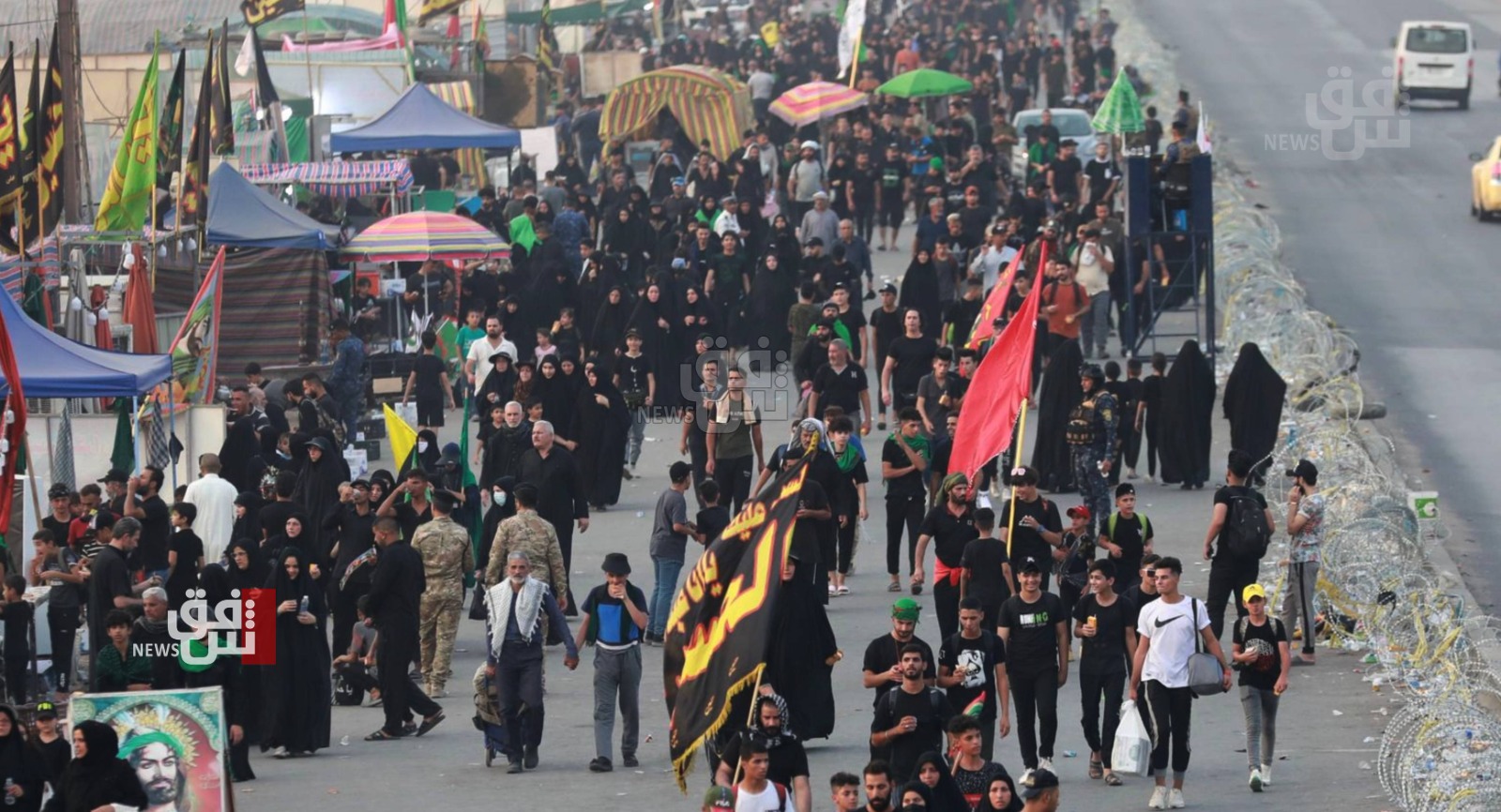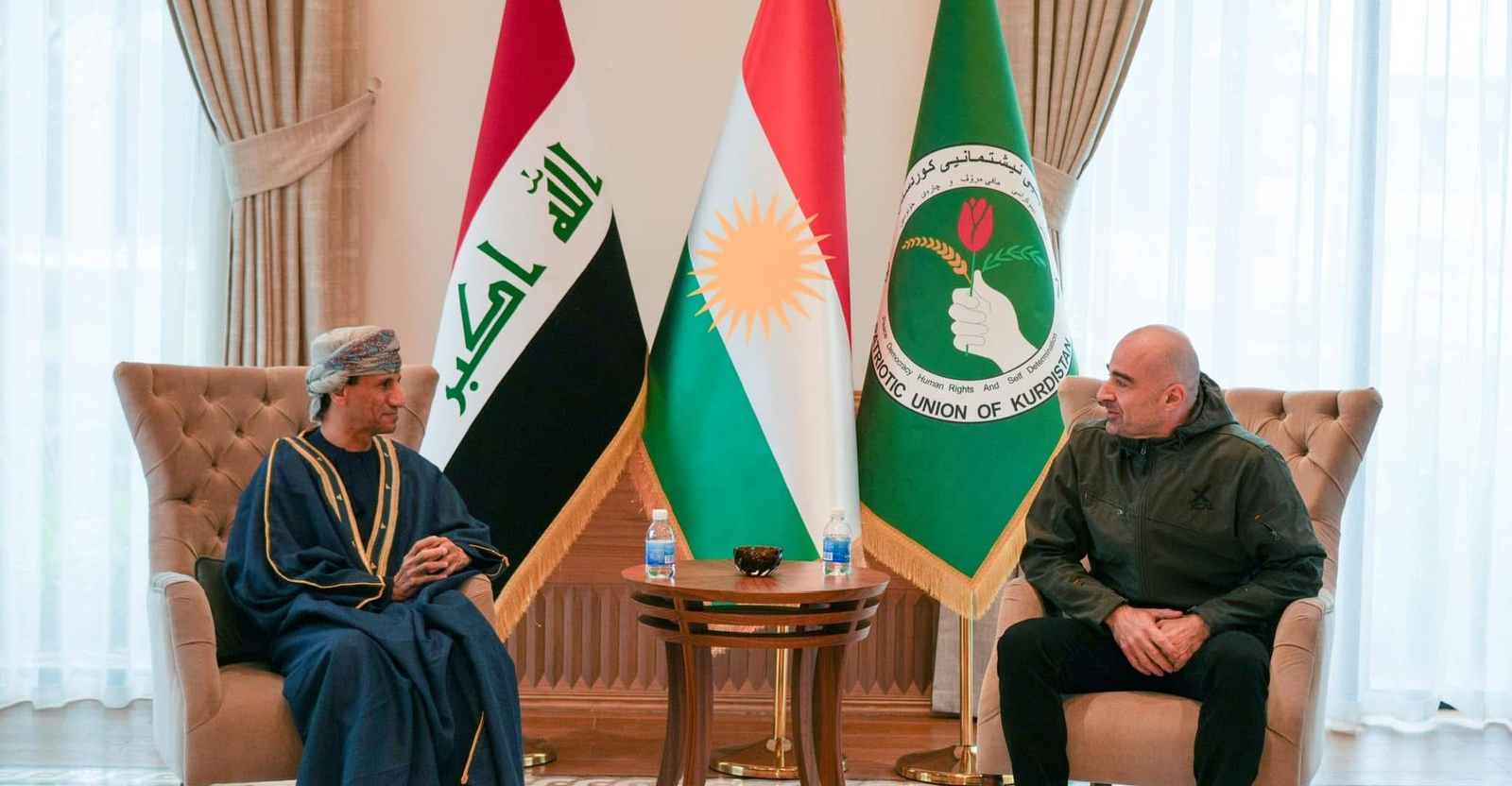Karbala welcomes record-breaking crowd for Arbaeen: seamless security and health measures

Shafaq News/ Each year, the city of Karbala becomes the focal point for one of the largest human gatherings globally, as millions of visitors from Iraq and beyond converge to observe Arbaeen, the solemn commemoration of Imam Hussein bin Ali, the grandson of the Prophet Muhammad (PBUH).
Iraq's air and land routes are fully geared up to handle the massive influx of visitors, which usually surpasses 20 million. As in previous years, the Iraqi government has rolled out a comprehensive security plan to prevent any potential issues related to services, security, or health.
Arbaeen Commemoration and Visitor Influx
Arbaeen, observed by the majority Shia Muslim population in Iraq, marks the 40th day after the martyrdom of Imam Hussein during the Battle of Karbala in 680 AD. Each year, on the 10th of Safar, millions of visitors, despite enduring temperatures exceeding 40 degrees Celsius, converge on Karbala to pay their respects at the shrines of Imam Hussein and his brother Abbas, situated in the heart of the city.
In 2022, official statistics recorded approximately 21 million participants in the commemoration. For the 2023 Arbaeen, the Abbasid Shrine reported 22,019,146 visitors, with Iranians constituting the largest group of foreign pilgrims at four million.
As of 2024, Brigadier General Miqdad Miri, spokesperson for the High Security Committee for Arbaeen, confirmed to Shafaq News Agency that over 2.7 million visitors from abroad had arrived by yesterday, entering through both land and air ports. The exact count of Iraqi pilgrims will be released following the event's conclusion.
Given this immense influx of people, a detailed and practical plan is essential to prevent any issues or accidents.
Efficient Security and Service Plan
The 2024 Arbaeen commemoration in Karbala is being managed under a highly efficient security and service plan, setting a new benchmark compared to previous years. So far, the event has been free of security, health, or transportation issues, significantly reducing traffic accidents and almost no fire incidents.
Brigadier General Miri highlighted the meticulous planning behind this year's success, "The security plan for Arbaeen began several months ago and was rolled out in three phases. The first phase focused on preemptive operations that started six months ago and are still ongoing. The second phase involved testing and evaluating sectors on the ground, and the third phase is the direct implementation we are now in."
He further explained that security forces took control of the area on August 5 and will maintain their presence until the last visitor departs Karbala. The plan involves extensive collaboration between the defense and interior ministries, the Popular Mobilization Forces, and various service ministries, all "fully committed to ensuring the success of this massive gathering."
Brigadier General Miri also noted that the security measures are progressing as planned, with fewer traffic accidents than in previous years and almost no fire incidents, thanks to proactive measures by the Civil Defense. Notably, no security breaches have been reported, and for the first time, the Ministry of Interior has successfully integrated radar systems into the security framework, a significant milestone. "This smooth execution has led many to consider this year's security plan the most effective yet."
Transportation Plan
In support of the Arbaeen pilgrimage, the Ministry of Transport has implemented an extensive transportation plan.
According to spokesperson Maytham Al-Safi, the ministry has deployed 300,000 private vehicles, 650 buses for passengers and delegations, and 130 trucks for logistical support from the General Land Transport Company. Additionally, 350 buses have been assigned to border crossings, with some directed to Karbala.
Al-Safi further detailed to Shafaq News that three main airports serve the influx of visitors: Basra, Najaf, and Baghdad. There has been a notable increase in flights to Baghdad (74 flights) and Najaf (102 flights), while Basra's flights are fewer due to its greater distance from Karbala. Iraqi Airways is contributing 26 aircraft, with other organizations also providing their vehicles for transport.
Regarding rail services, Al-Safi reported that 18 train trips have been made from Basra to Karbala and 10 from Baghdad to Karbala, with the transportation process continuing smoothly and no issues reported to date.
Health Plan
The Karbala Health Directorate, in collaboration with the Ministry of Health and local government, launched its health plan eight days ago to address the needs of Arbaeen visitors.
Spokesperson Mohammad Toufan outlined the plan, emphasizing to Shafaq News its focus on three key routes: the Karbala-Baghdad axis, the Karbala-Babil axis, and the Karbala-Najaf axis.
Toufan detailed the extensive resources dedicated to health services, including eight government institutions and five private hospitals operating 24/7, over 150 specialized centers providing continuous care, and 216 ambulances available round the clock for emergency transportation.
The health plan also includes 20,000 employees from the Karbala Health Directorate working around the clock, supported by 143 Rapid Response Teams equipped to handle emergencies in challenging locations. 78 mobile teams are also engaged in public awareness campaigns and food safety inspections across restaurants, checkpoints, and kitchens.
"As of today, the Karbala Health Directorate has delivered comprehensive services to 2.7 million visitors during Arbaeen. Health services include over 156,000 emergency and consultation visits, more than 59,000 medical tests such as ultrasounds, X-rays, and CT scans, and over 59,000 units of donated blood. The medical team has also performed 958 surgeries and assisted in 525 childbirths, primarily in Karbala."
Toufan praised the support from the two holy shrine Departments, the Popular Mobilization Forces' medical units, and the Nursing Syndicate, which have collectively assisted over 194,000 visitors. Contributions from mobile medical units and residents have also been integral. No health breaches have been reported thus far, reflecting the plan's success in managing this large-scale event.



